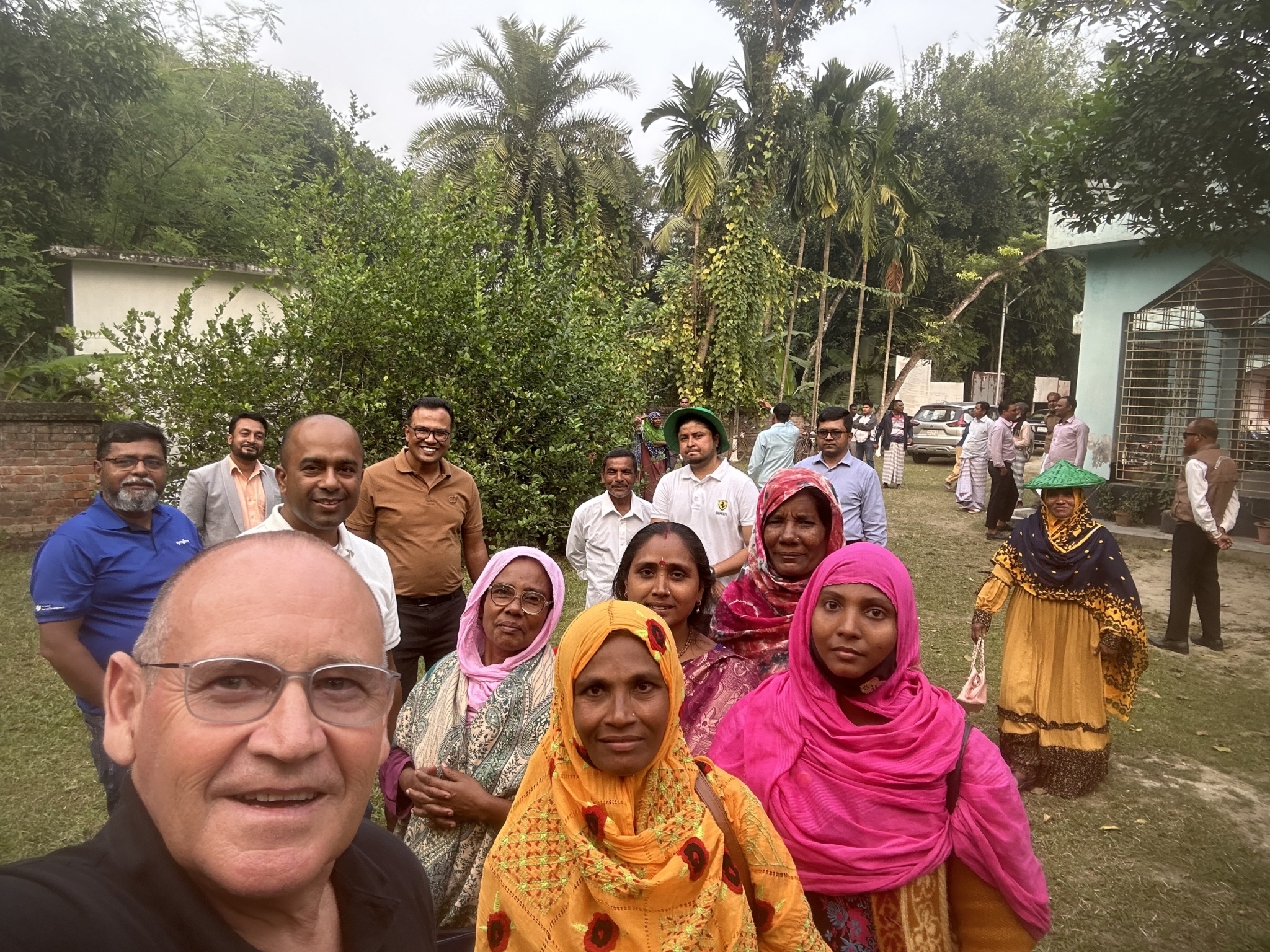The ‘land of smiles’ lives up to its name
12 Sep 2025
Moving to Thailand last April, Paul is Head of Asia for Syngenta, a leading science-based agriculture company that helps farmers to grow resilient, healthy crops to feed the growing global population. He heads its work in South Korea, Philippines, Malaysia, Indonesia, Vietnam, Thailand, Taiwan, and Bangladesh.
Together with his wife, Paul lives on the 14th floor of an apartment in the middle of the bustling suburb of Sukhumvit.
“Bangkok is an amazing city; it’s such a gritty vibrant exciting place. The food is unbelievably good, ranging from street food to Michelin star restaurants and everything in between. The Thai spice takes some getting accustomed to and we are still on that journey. A useful phrase worth learning if you don’t like spice is – mai pet (no spice) or pet nit noi (little spicy).”
Thailand is referred to as the ‘land of smiles’ and Paul says the people really are incredibly warm, friendly and welcoming.
For the first time in more than 40 years, the couple doesn’t have a car, instead relying on trains, the underground and grabs (taxi/uber) to get around.
“Bangkok is so well positioned from a travel perspective. The countries I oversee are all within a few hours and it’s been fantastic to tack a few days on to the business trips and look around on weekends,” Paul says.
Aside from the heat and traffic, language can be a challenge. While most of Paul’s teams have good English, he needs an interpreter for the farming communities.
He says the challenge of food security and food safety in the region is very real, exacerbated by growing populations and finite resources.
“Unlike Australia and New Zealand, Asia is made up of about 300 million small holder farmers across the eight countries I look after and their average farm may only be as little as a quarter to a half hectare,” Paul says.
“While different in size, many of the challenges are the same – namely climate volatility, crop price variability, infrastructure to get to market and increased government intervention, and red tape.
“The farmers in Asia have a thirst for knowledge and a lot of my teams’ time is spent in the field upskilling and training farmers to improve productivity through new techniques and modern agricultural practices. A lot of this is done face to face on the side of the rice paddies or vegetable fields with an increasing reliance on digital connectivity. It’s very rewarding.”
Syngenta is a global company with 30,000 staff in more than 90 countries.

Syngenta runs a farm school for women in remote rural Bangladesh.
